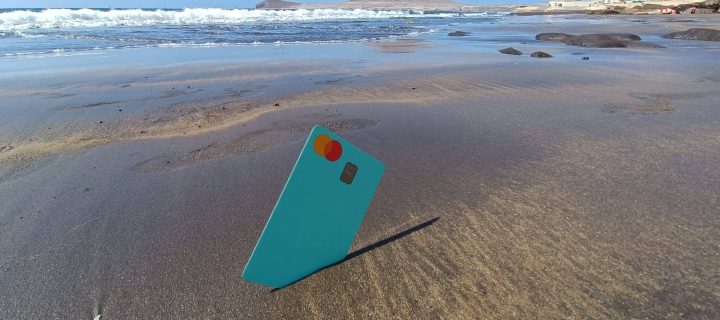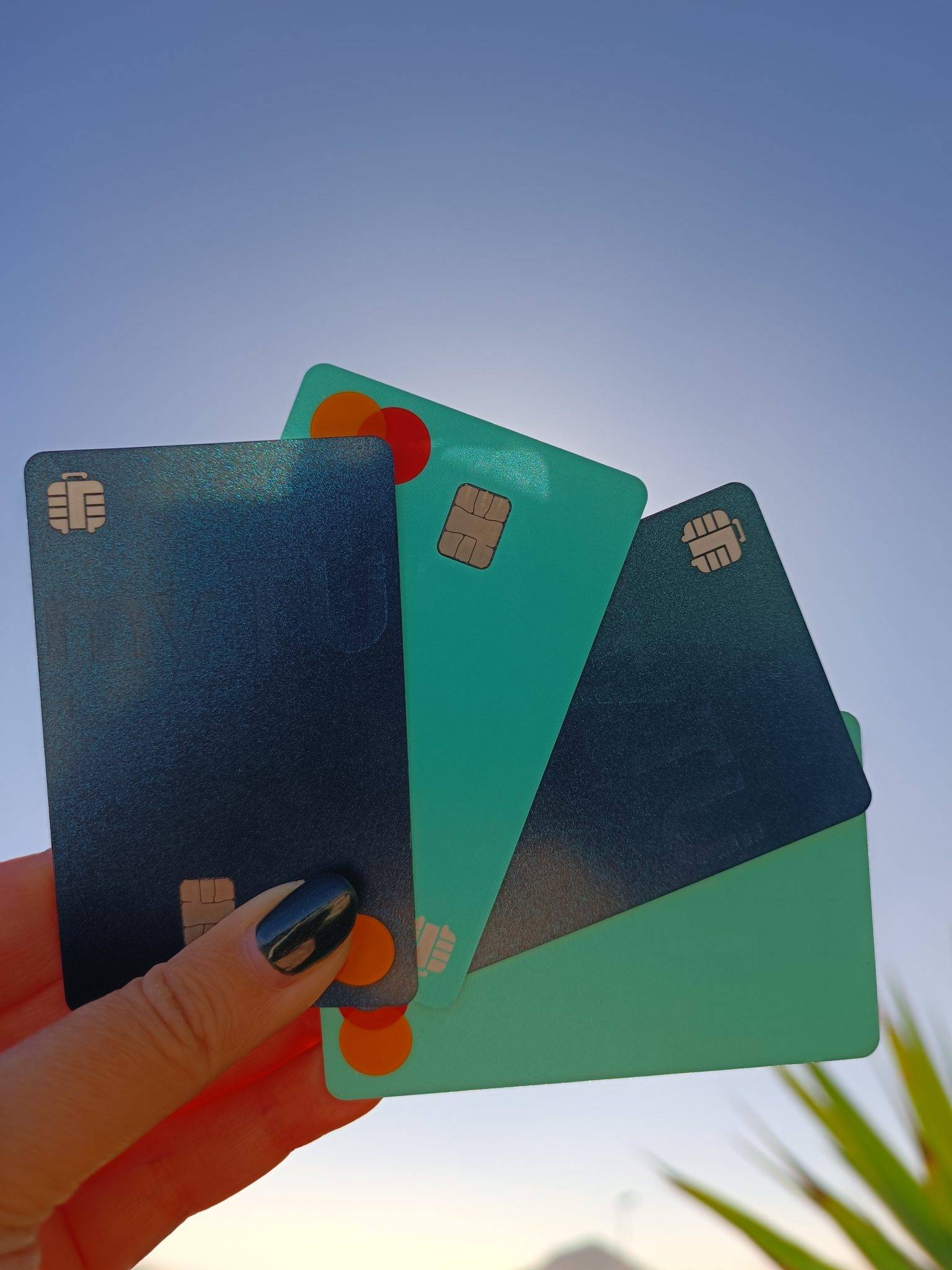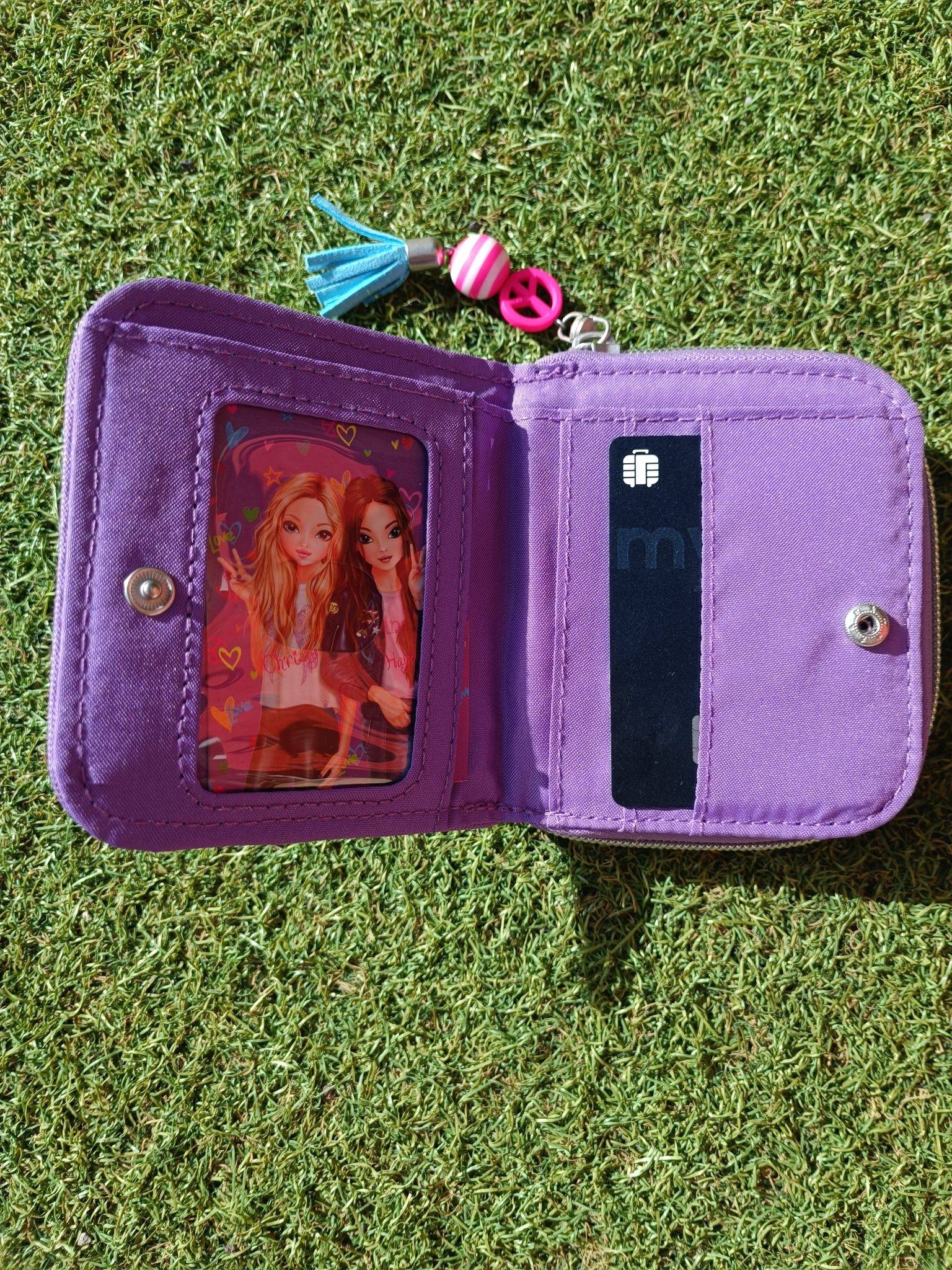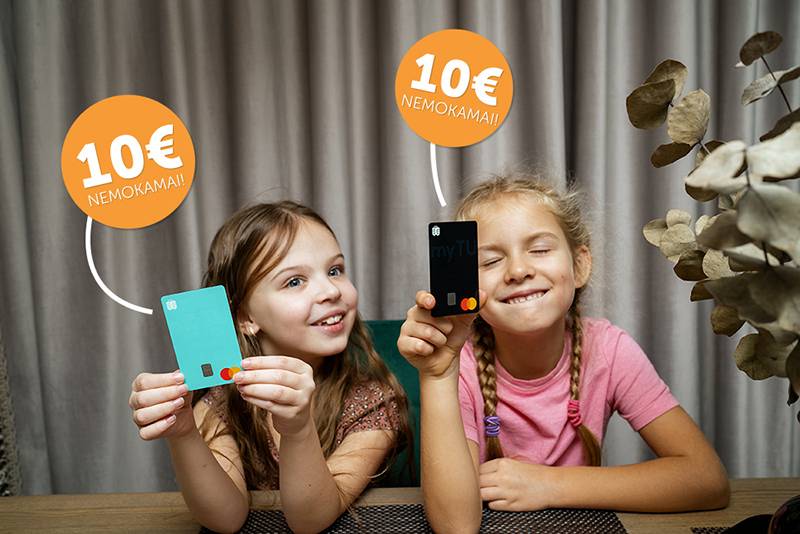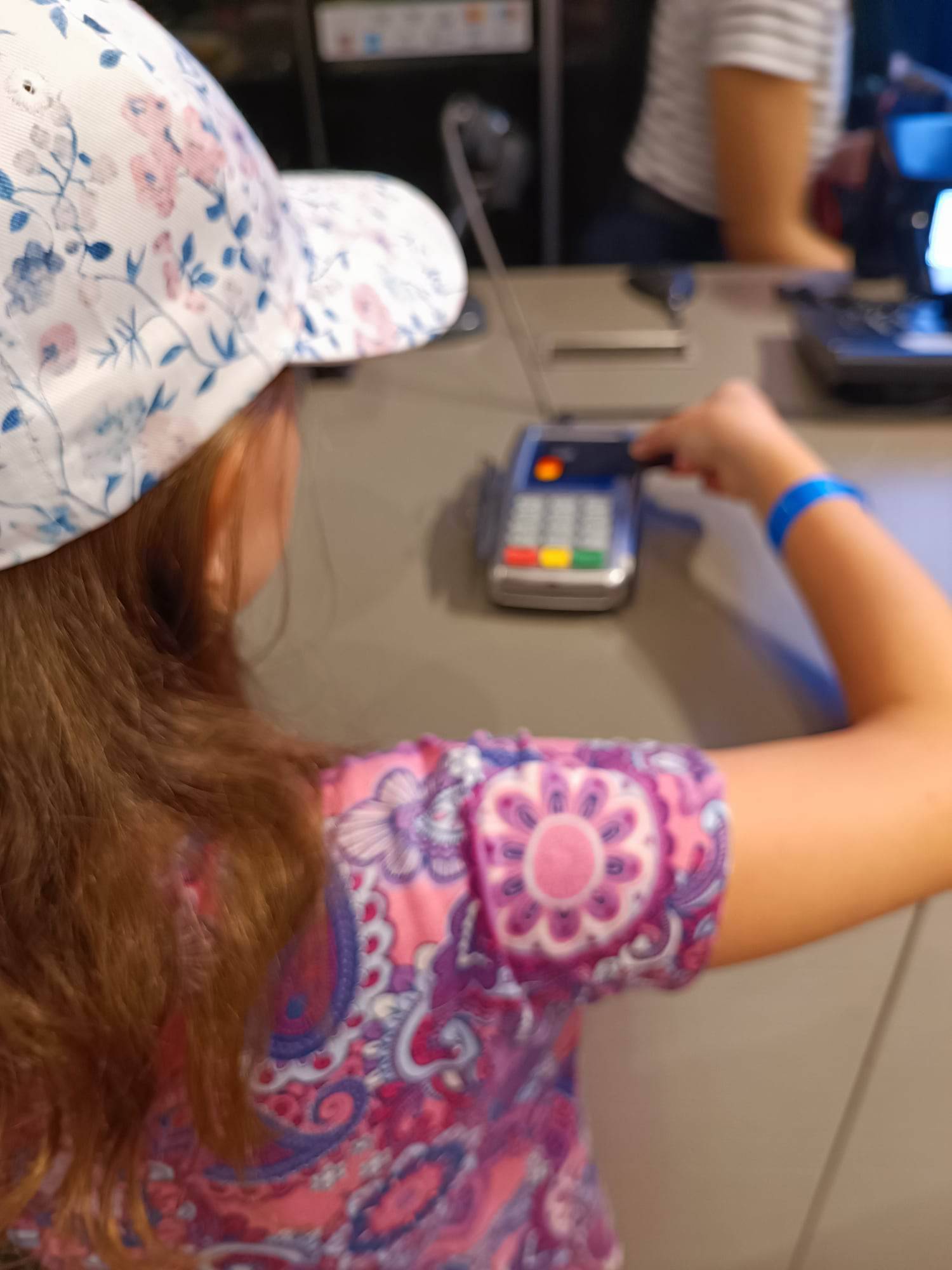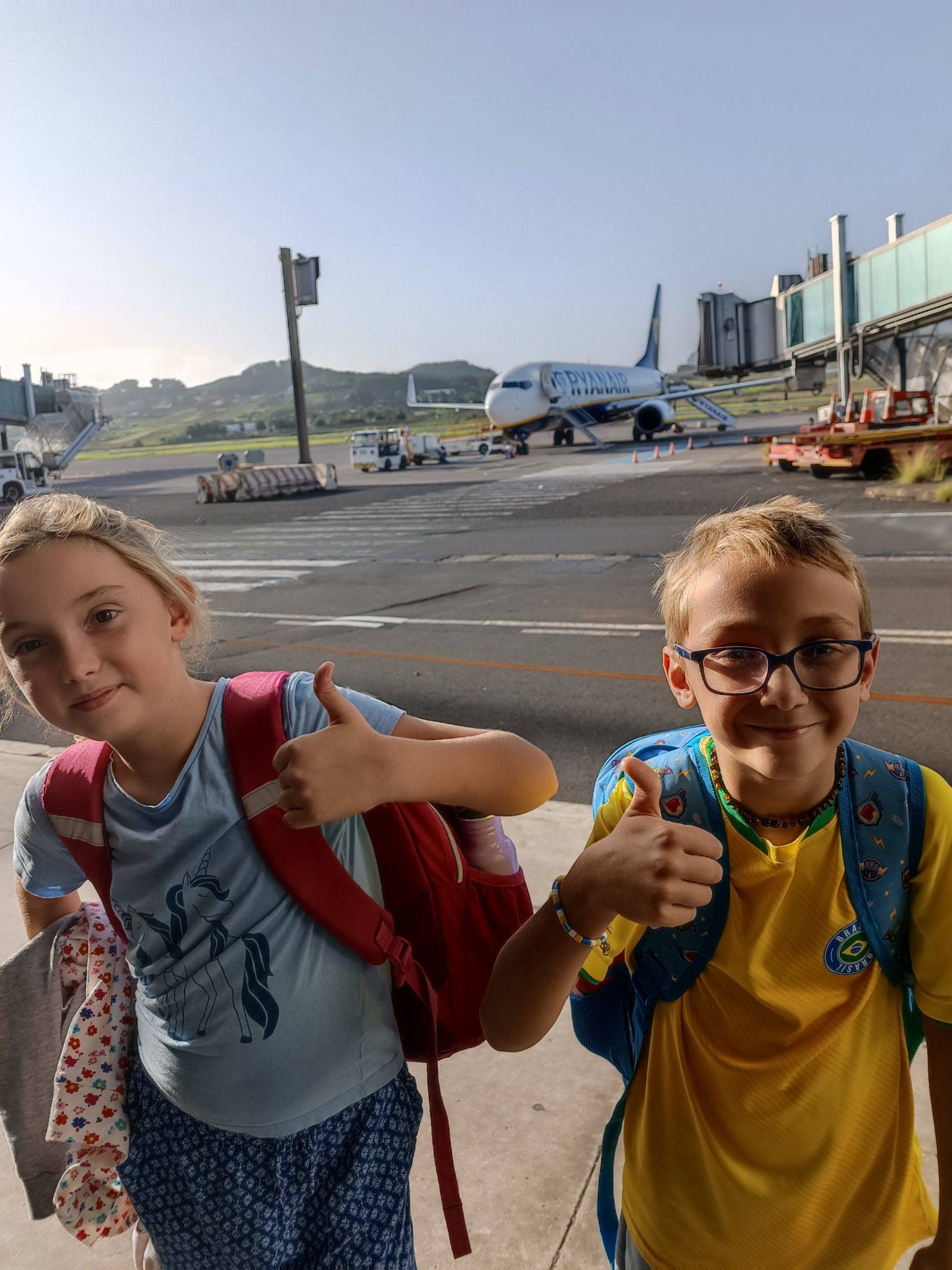Summer is a great time to talk to your children about finances, financial instruments and learning how to handle money. We send our children to their grandparents for the summer, to camps – pocket money, its size and shape, is one of the most important topics in a family. We also discuss more often with our older children where we want to go for holidays, entertainment and weekend getaways. So, is including children in holiday budget planning important?
So, should we be including children in holiday budget planning, or should we discuss with them which country you will go to, which hotel you will stay in, what activities you will choose?
Jolita from “Travel with Children” started using myTU mobile banking and myTU payment cards for children six months ago. Jolita shares her children’s Greta and Oskaras journey to financial literacy, and tips on how to teach children financial literacy when planning trips, holidays and outings.
When should you start including children in holiday budget planning? And how?
Our Oskaras is seven and Greta is nine. When they were younger, we used to decide what to buy, where to go, where to have fun. Maybe we were lucky, but we didn’t have very big scenes of children falling down and throwing tantrums in supermarkets.
When children grow up, it is no longer enough to say let’s go there, let’s go here and let’s have fun here. Increasingly, we have to use both negotiating and explanatory examples. This may have been one of the main reasons why we became interested in payment cards for children. We wanted them to be able to save, spend and receive monetary gifts from their relatives. We also really wanted children to have the opportunity to experience for themselves the situations of “empty” cards, “no money” and “I spent it all”. It’s really hard for children to understand how much money their parents have in the bank and why they can’t spend as much as they want. Our children, like everybody else, do not shy away from emotional purchases – they want toys, clothes and the like. And, indeed, sometimes they spend all the money they have saved on them.
Understanding that money can run out
Our daughter Greta couldn’t understand that “money doesn’t grow on trees”. When we told her that we couldn’t spend all our money on entertainment and toys, she would say “you’ll get it” from the bank. There was no understanding that even the money on the card is not “endless” or “self-fulfilling”. And now she often checks the balance on her myTU card app and thinks in advance whether she will be able to afford certain purchases and entertainment.
We believe that the age of 7 years, that is recommended age by myTU to open an account, is the right age for children to start learning about money, virtual money and having their own cards.
myTU card in our family
We signed up for myTU cards six months ago – they are currently used for children’s daily allowances and birthday presents.
The children have already been involved in the ordering process – we talked about why we were ordering the cards for them, let them choose the colour of the card, and filled in the application form together. By the way, the child has to be present when filling in the questionnaire – they will need to be photographed. Very importantly, both your and your child’s account opening is done online, no need to go anywhere. The card you order arrives directly at the address you provide.
You should also be aware that when ordering cards for children, a mobile phone and a separate number are required, so if your child does not have a mobile phone, you will have to make up a solution like we did – we used our work mobile numbers as our children did not have mobile phones when ordering the cards.
Opening a myTU payment account for your child will allow you to monitor their financial activity, top up their account instantly and manage basic settings.
myTU card features:
- Child card lock/unlock. Child forgot where they left their wallet? LOCK or UNLOCK the child’s card in your app in seconds.
- Real-time notifications of activity on your child’s payment account. Get instant notifications of every action on your child’s payment account and always have peace of mind.
- Manage your child’s payment account features. Control your child’s payment account functions based on their age and knowledge: enable/disable ATM cash withdrawals, card payments or online payments.
- Limits on your child’s payment account. Set limits for your child’s account. For more expensive purchases – will have to consult parents and get permission.
- Blocking the payment account. Have you noticed suspicious activity on your child’s payment account? Block your child’s payment account immediately.
Children will get their first payment card and many handy everyday features of the app that will safely teach financial literacy.
What did our children liked about this card?
- The app for kids. The children created their own avatars – pictures in the app. It was a whole separate fun process.
- Easy to use and safe app. Although the basic settings are controlled and the child’s financial activity is monitored by the parents from their phone, the child feels quite independent to see all the information on their app.
- Parental control. Yes, yes, our children are already in control of whether they have received their daily allowance and other promised cash gifts. By the way, for our convenience, parents can set the daily allowance to be paid automatically without any additional clicks.
- Money to buy your dreams – you can create a separate fund to put money towards your dream. And if you have more dreams, you can create as many as you need and save separately for each volume.
- And of course the biggest surprise – a gift from myTU – the first money on their cards!
Why did we choose myTU?
Opening an account is free for both adults and children, and there are no annual or monthly account fees. Basic payment services with myTU mobile banking are free. Payment cards and their downloads are also free. There are no additional fees. Read more on the myTU website.
Has it worked?
Honestly, sometimes anything can happen. Oscar, although younger, is more frugal. Greta finds it harder to save – but we try as much as possible to let them feel the value of money and let them make their own decisions. Of course, we don’t always make the best decisions for us, but we are all learning – the children are learning how to deal with money, we are learning to let the children be independent and make their own decisions. But we are certainly seeing the benefits: in the shop, children are interested in prices, comparing them, calculating what they could buy for one amount or another, and more and more often rejecting unnecessary or emotional purchases.
Budgeting for holidays and trips with children
Planning your trip and setting a budget is essential. Of course, we leave room for improvisation, but in most cases, transport (flights, car rental, ferries, etc.) and accommodation are decided and planned in advance. This creates a kind of framework for the holiday and, in most cases, it is cheaper to book in advance. When travelling with children, planning in advance pays off and saves a lot of nerves and money.
TIPS&TRICKS to keep the travel budget within the planned amount:
- Check the specifics of each country you are planning to visit – some countries have very strong seasonality, some have no such thing. Almost always you need to plan in advance. If you are planning to travel out of season, you can also look for last minute deals. Or even pick a place on arrival.
- Check all hotel booking systems. Often prices vary widely and you may find a significantly better price at one than another. Our most used platforms are Booking.com and Airbnb.
- Sign up for our newsletters and keep an eye out for airline sales or promotions. This way you may find particularly low prices.
- Prices rise significantly during the children’s holidays, and if you don’t book in advance, you might not get the destination or hotel you want.
- Security – Always be vigilant, keep your essentials safe, don’t leave them in rental cars. Keep your documents and money in a safe in the accommodation, and don’t carry large sums of money or all your payment cards. For more information, see Safety and security when traveling with children.
- Plan all key actions in advance. Documents, health insurance, flight preparation, we’ve written about Tips for preparing for a trip with children.
- Entertainment, sightseeing and so on can already be planned locally, unless you know that a particular place is extremely busy at a particular time, in which case you will need to buy tickets in advance. The “Travel4kids” website has a lot of recommendations on what to see, where to go, how to save money and where to book tickets for attractions. We always recommend booking your tickets on one of the biggest attractions and excursions system.
How can start including children in holiday budget planning?
In my opinion, talking to children about finances and budgeting for a trip or holiday should be done early. Perhaps from the time they start to wonder how much things cost and why they choose one way of travelling or another. Talk to your children about how much money your family can afford to spend on a holiday. Also about why you can’t, say, go on holiday to a luxury hotel, or why you prefer a holiday in the countryside.
Our children have been asking us for several years how much the hotel, dinner and the whole holiday cost. Then we discuss – is it a little or a lot? Although it is still difficult for children to understand and grasp larger amounts, we try to explain the value with examples that they can understand. If we afford a more luxurious hotel or dinner, we discuss whether it was worth paying more and why. Of course, we realise that there is still a lot that children do not fully understand. Nevertheless we also notice from the questions that they are asking that they are slowly starting to feel the value of money.
Our tips on how to start including children in holiday budget planning:
- Include children in holiday budget planning as early as the time you start planning the trip – choosing the hotel, planning the activities. Children need to understand how much things cost, why if we go to one water park, we don’t go to another, and why we spend our budget on other activities.
- Let children choose – e.g. one dessert a day (ice cream, smoothie, waffle) and one activity (trampolines, amusement rides, game machine). While you’re getting used to it – repeat this rule before going out for fun or out on the town. This will remind you of the agreement each time. By the way, this rule also applies to younger children;
- Allocate a budget for their purchases and entertainment that we normally think of as a waste of money (such as games machines or expensive souvenirs at amusement parks). If the children already have their own cards, transfer that amount to them. This way, the children will know how much money they have. Also there will be no need for anger, discussion, sadness and upset every time – not only for the children, but also for the parents. Let the children do the maths and decide what to buy and how much to buy.
- Do not comment if the child spends all the money. But make it clear in advance that when the budget is over, there will be no shopping the next day.
Empower children to make financial decisions
I’ll tell you about our latest arrangement with my nine-year-old daughter Greta, who is quite opinionated. Greta had decided to celebrate her ninth birthday in a large entertainment and play complex. It would have cost our family more than a few hundred euros to celebrate her birthday. But suddenly I received an offer to attend an event in Barcelona. My daughter had the choice of celebrating her birthday and letting me go to Barcelona alone, or celebrating her birthday at home with just a few friends and family, and going to Barcelona with the whole family for her birthday. Our children, as we know, love to travel, so it was an easy decision for Greta. She decided to go to Barcelona together and celebrate her birthday in a more modest way.
After the trip, we have already started dreaming that for our daughter’s 10th birthday, we might want to go together too – and we already know where.
So, should we involve the children in the planning of holidays and holiday budgets? If I had made the decision on my own – my eldest probably wouldn’t be very happy. In this case, I let her make the decision by giving her several options. And Greta was happy not only because of the trip to Barcelona, but also because she made the decision herself.
Giving children independence is crucial
Children’s decisions like these and others like them show us that the ways we choose to teach them how to manage their money, how to plan together not only their everyday purchases, but also their trips, outings and holidays, are the right ones, and are useful. We need to guide children in the right direction and give them the tools to achieve their goals. In the same time we also need to give them the freedom to decide, or even to make mistakes,

